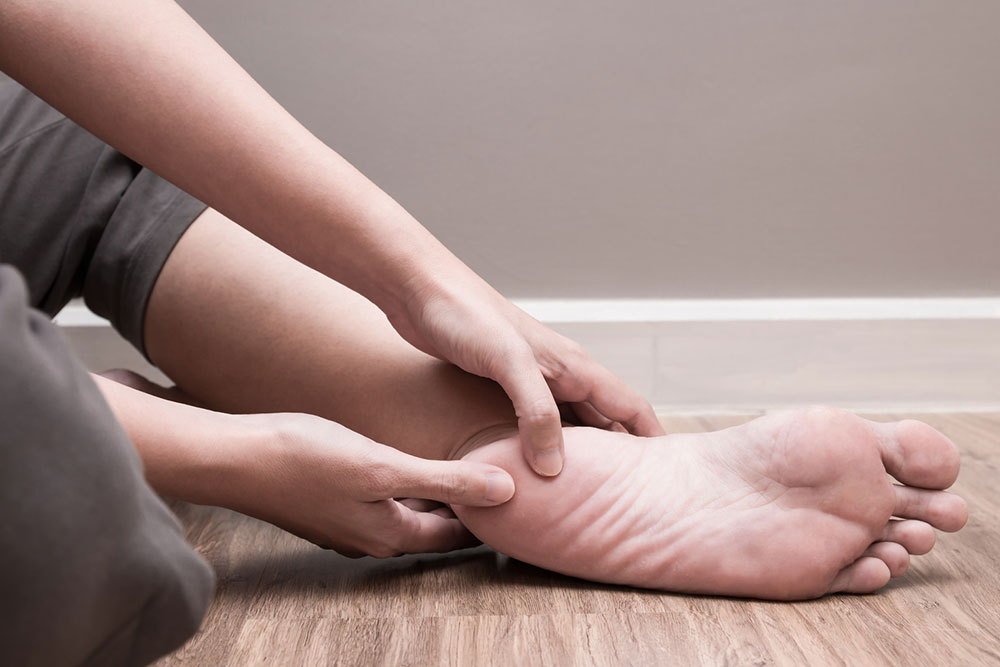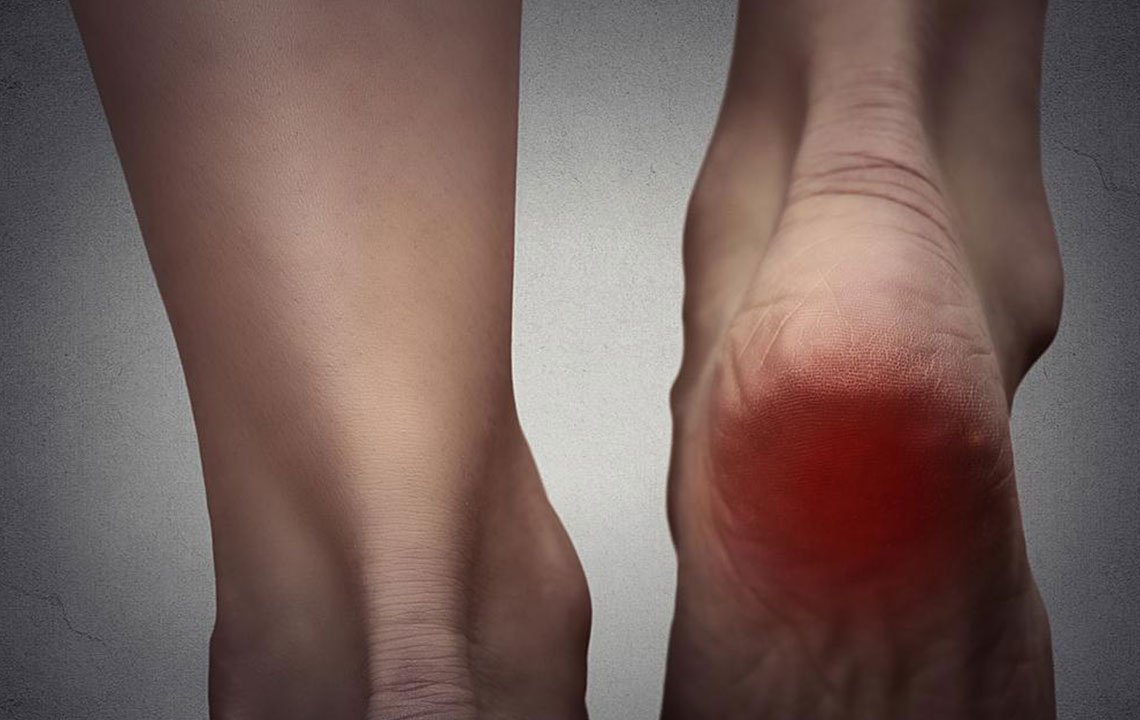Comprehensive Approaches to Relieve Burning Foot Pain and Discomfort
This comprehensive guide explores effective strategies to alleviate burning foot discomfort caused by neuropathy, poor circulation, or injuries. It covers lifestyle modifications, home remedies, dietary suggestions, and medical treatments designed to reduce inflammation and improve nerve health. Practical tips such as water immersion, natural oils, herbal pastes, and dietary changes support overall foot health and help manage persistent burning sensations. Consulting healthcare professionals remains essential for persistent or severe cases, ensuring targeted treatment tailored to individual needs.

Effective Methods to Alleviate Burning Feet Sensations
Burning feet sensation is a common complaint experienced by many individuals worldwide. This uncomfortable feeling can severely impact daily activities and quality of life. The underlying causes can vary widely, ranging from nerve-related issues to systemic health conditions. Understanding the root causes and exploring various treatment options and lifestyle modifications can significantly improve symptom management and overall foot health.
Neuropathy is one of the primary reasons behind burning sensations in the feet. Peripheral neuropathy, which involves nerve damage outside the brain and spinal cord, can result from a variety of factors. Diabetes mellitus, for example, is a leading cause of diabetic neuropathy. Elevated blood sugar levels over time damage nerve fibers, especially in the lower limbs, leading to symptoms like burning, numbness, tingling, and sometimes sharp pain. Managing blood glucose levels effectively is crucial to prevent or slow the progression of nerve damage and to alleviate symptoms.
In addition to diabetes, other contributors to burning feet include deficiencies in essential nutrients such as B vitamins, especially B12. These vitamins are vital for nerve health and regeneration. Substance abuse, particularly excessive alcohol consumption, can also impair nerve function. Exposure to environmental toxins or hazardous chemicals may cause nerve toxicity. Furthermore, certain medical conditions like kidney disease, which causes toxin buildup in the body, and vascular problems like poor circulation, can contribute to nerve damage and discomfort.
The symptoms associated with burning feet are not limited to the sensation alone. Patients may experience swelling, redness, and excessive sweating, which are signs of underlying circulatory or nerve issues. Skin peeling, a dull ache, and changes in skin coloration are also common symptoms. These manifestations can complicate foot health and increase the risk of infections or other complications if left untreated.
Fortunately, many over-the-counter medications and prescription treatments are available to help manage burning sensations in the feet. Topical creams, nerve pain medications, and supplements can provide relief. However, it is essential to consult a healthcare professional for an accurate diagnosis and personalized treatment plan, especially if symptoms persist or worsen. Diagnostic evaluations such as electromyography (EMG), nerve conduction studies, lab tests, and nerve biopsies play a critical role in determining the underlying cause. Identifying the root issue is vital for targeted and effective treatment strategies.
For quick relief, simple home remedies like cold water immersion can be effective, especially when burning is caused by muscle overuse or inflammation. Soaking the feet in cold water for a brief period can reduce inflammation and numb the area temporarily. However, prolonged exposure should be avoided, particularly in conditions like erythromelalgia, which involves episodes of intense burning and redness triggered by heat.
On the other hand, soaking feet in warm water can promote circulation and support healing. Warm water therapy helps ease discomfort caused by trauma, fatigue, or poor circulation. Adding calming agents such as Epsom salts, which contain magnesium sulfate, enhances the therapeutic effect. An Epsom salt bath not only alleviates pain and inflammation but also promotes relaxation and stress relief.
Natural remedies such as cayenne pepper, which is rich in capsaicin, are popular among those seeking alternative treatments. Adding half a teaspoon of cayenne into hot water and soaking the feet might help diminish burning sensations by blocking pain signals. For cold feet or to promote warmth, sprinkling cayenne pepper inside socks can provide a soothing and warming effect, improving circulation and comfort.
Clove oil, known for its analgesic and anti-inflammatory properties, can be gently massaged into the feet. This practice increases blood flow and relieves dull burning feelings. It is advisable to dilute clove oil with carrier oils like olive or coconut oil, especially for individuals with sensitive skin or minor cuts, to prevent irritation.
Another well-known home remedy involves Epsom salt baths, which quickly reduce pain and swelling. Regular soaks—around ten minutes, twice daily—can help restore nerve function and diminish discomfort over time. Consistent use as part of a daily routine can be very beneficial in managing chronic symptoms effectively.
Traditional herbal remedies also exist, such as applying a paste made from bitter gourd leaves directly onto affected areas. This natural treatment has been used for centuries to relieve burning sensations and promote healing due to its anti-inflammatory and cooling properties.
Nutrition and diet contribute significantly to managing burning feet symptoms. Including probiotic-rich foods like yogurt or fermented products can improve gut health, which in turn supports nerve health. Fresh fruit juices are rich in antioxidants that combat inflammation and oxidative stress.
Apple cider vinegar, renowned for its anti-inflammatory and detoxifying effects, can be incorporated into foot baths by adding a few tablespoons along with herbs like rosemary or peppermint. Repeating these baths multiple times daily can enhance relief and reduce redness or swelling.
Turmeric, which contains the potent compound curcumin, is an excellent natural anti-inflammatory. Consuming turmeric-infused warm water twice daily or applying a paste to affected areas can improve blood flow and reduce nerve inflammation, alleviating burning sensations effectively.
Ginger, another powerful anti-inflammatory herb, can be juiced and mixed with warm coconut or olive oil for topical application. Ginger tea consumption also offers systemic benefits, reducing swelling and discomfort while supporting circulatory health.





